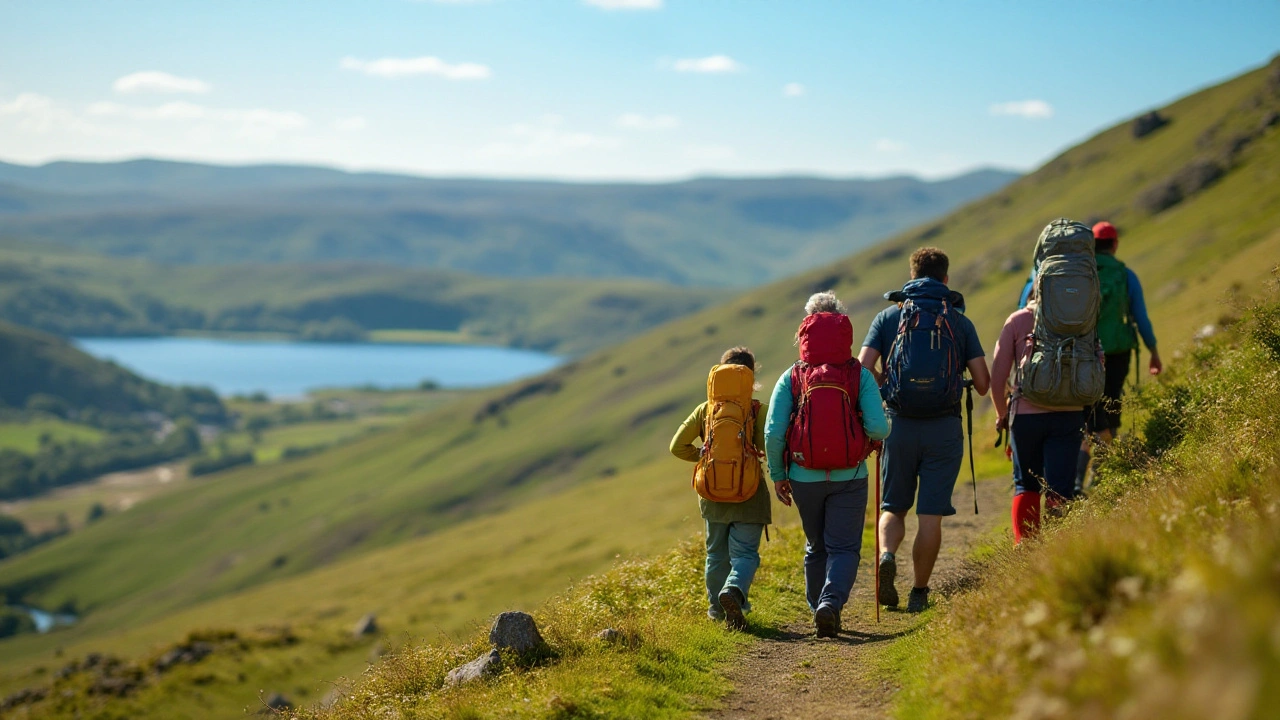Hiking is one of the easiest ways to get fitter and feel calmer. A walk on a trail gives better cardio than a casual stroll, helps clear your head, and can lift your mood in under an hour. It’s cheap, flexible, and you decide the pace. Want a low-stress way to feel better? Put on shoes and go find a path.
Walking uphill strengthens legs, glutes, and your heart without needing a gym. Short bursts of steep walking boost metabolism and help with weight control. On the brain side, time outdoors lowers stress hormones and improves focus. People who hike regularly report better sleep and fewer anxious days. If you struggle with stress-related tummy issues, gentle exercise like hiking can calm the gut-brain connection and ease digestion.
Hiking also gives you a built-in mindfulness practice. Paying attention to your breath, steps, and surroundings reduces racing thoughts. You don’t need to sit still to be mindful—moving with intention works just as well. Use the trail to practice single-tasking: focus on one footfall, one breath, one view.
Start light. Good hiking shoes or trail runners matter more than an expensive pack. Dress in layers so you can peel off a jacket when you warm up. Bring a small first-aid kit, a headlamp if there’s any chance you’ll finish after dark, and a map or phone with offline directions.
Snack smart. Choose snacks that keep energy steady: a mix of carbs and protein like a banana and a small handful of nuts, whole-grain crackers with cheese, or Greek yogurt in a cooler pack. Energy bars are fine—pick ones with real ingredients and at least 5–7 grams of protein. For long days, add a salty snack to replace electrolytes.
Hydration matters. Sip water regularly; don’t wait until you’re thirsty. For longer hikes, bring an electrolyte drink or add a tablet to water. If you plan a multi-day trip, practice water treatment—filters or purification tablets—so you don’t carry all your water.
Protect your feet. Blisters ruin hikes fast. Wear moisture-wicking socks and break in shoes before long routes. Pack blister patches and use gaiters on dusty trails to keep grit out of shoes.
If you take prescription meds, check how they should be stored and whether you need refills before a trip. Carry meds in original packaging, pack a few extra doses, and note emergency contact info. If you rely on a specific drug, confirm coverage and refill rules if you’ll be away from home for several days.
Start small and build. Try a 3–5 mile loop with mixed terrain, then add elevation or distance week by week. Invite a friend for safety and social motivation. Track how you feel after each hike—better sleep, less stress, more focus are signs you’re on the right path.
Hiking is simple, but it pays big health dividends. Use practical gear, pack the right snacks, and pay attention to your body. The trail will do the rest.

Regular hiking is more than just a pleasant walk in nature; it's a powerful tool for improving physical health and mental well-being. By engaging in this form of exercise, individuals can experience enhanced cardiovascular health, increased strength and flexibility, and elevated mood. Hiking in nature also provides a sense of tranquility and connection to the natural world. This article delves into the many health advantages of making hiking a regular habit and offers tips for getting started.
Read More